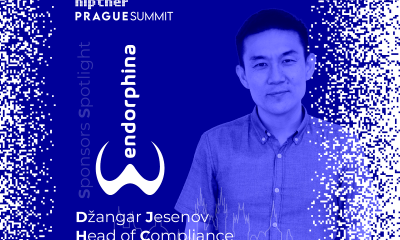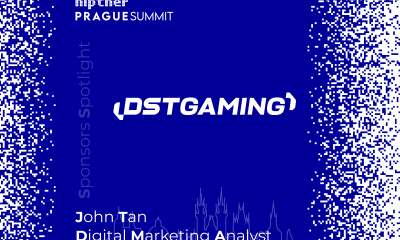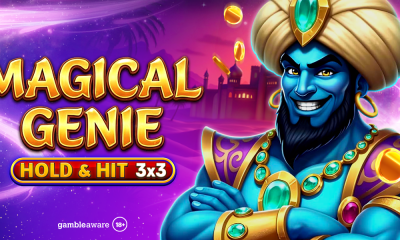eSports
Game Changers: A Roundtable on the eSports Revolution
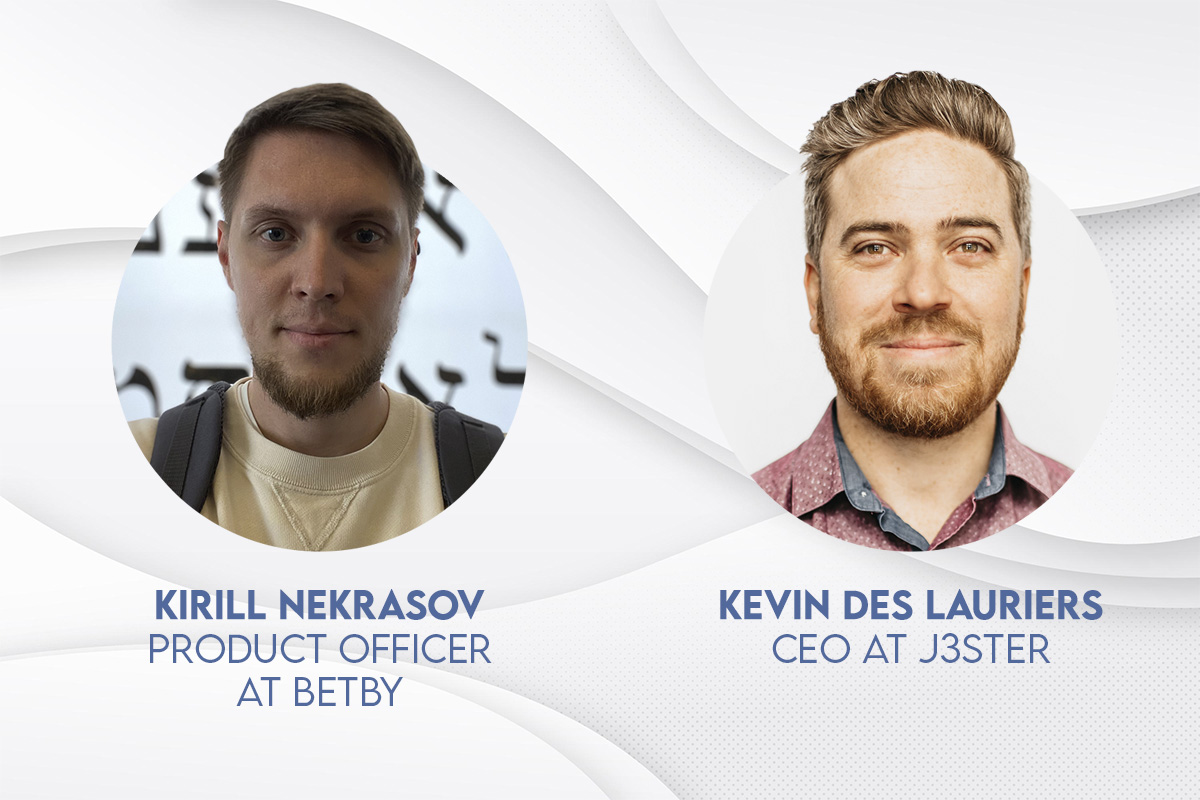
Over the last decade, a significant cultural shift has occurred in the entertainment industry. Esports, the organized and competitive form of video gaming, has gone from a fringe interest to a global sensation, captivating millions of fans and bringing in billions of dollars in revenue. This rapid rise has not only transformed gaming from a casual hobby to a legitimate profession but has also firmly established itself in mainstream culture, challenging traditional sports and revolutionizing the entertainment industry as a whole.
Esports, short for electronic sports, has evolved into a flourishing industry encompassing competitive gaming, live events, sponsorships, media coverage, and an ever-growing fan base. As technology advances, so does the potential for esports to redefine what it means to be a spectator and participant in the world of sports and entertainment. With a structure that mirrors traditional sports leagues, including professional teams, star players, and devoted fan communities, esports has become an influential force, making a significant impact on the gaming world and broader society.
For this roundtable, European Gaming spoke to Kevin des Lauriers, CEO at J3STER, and Kirill Nekrasov, Product Officer at BETBY to delve deeper into the rise of esports, examining the factors behind its explosive growth, the influence it wields across various industries and the exciting possibilities that lie on the horizon. By understanding the transformative power of esports and the remarkable journey it has undertaken thus far, we gain insights into a phenomenon that continues to reshape entertainment, challenge societal norms, and captivate a generation of enthusiasts.
How is the rise of esports changing the way people interact with games?
KDL: Globally, we’re seeing a big increase in arenas being built specifically to draw in fans of esports. We’re also seeing a rise in LAN events across the world, with competitive and even casual players now putting together teams in order to get involved. Smaller sponsors are putting on more tournaments, and there seems to be a plethora of new leagues being created for any and every game imaginable – not just the usual titles, such as Warzone and League of Legends.
KN: There is a vast increase in viewers who passionately follow certain teams and particular disciplines within esports, whether that be soccer, ebasketball or any other sport that they like. This engagement ultimately acts as the spark for viewers to become participants, following in the footsteps of their favourite esports players, getting involved at an amateur level and engaging with the esports that they enjoy most.
Influencers are often the faces of esports. What impact do these figures have on the industry?
KDL: In the industry, we’re in an interesting spot where influencers currently have a lot of power. Prominent players can discover and highlight exploits in games, effectively pushing game publishers to release patches and fixes more frequently. These publishers are also clamouring to release new features to keep these influencers happy and engaged, otherwise they risk them moving on to the next big thing.
There are armies of community managers working with game publishers, ready to provide influencers with gifts such as giveaway items for their fans, card packs, in-game content such as skins and more. Winning these influencers over is a surefire way to garner a positive reception in the esports sphere.
KN: In many industries, influencers are becoming more high-profile, garnering trust amongst audiences and shaping trends. These people within the esports industry are no different, whether they are players who were already in the public eye, or streamers who have amassed an organic following. However, the impact of these figures can both be positive and negative.
If influencers enter the world of esports solely to generate quick success and garner hype, without having an esports background or a noticeable passion, then this can have a negative impact on the long-term development of the industry. If they do not enjoy the content, or understand the complexities and depth of esports, passionate fans will see through this attempt to engage with them and be turned away.
This can reduce the quality of new entrants. Some may also use their popularity to promote products or events that do not align with the values and needs of the esports community. This can also create a negative perception among fans.
Following that, what is the main appeal for both players and influencers to get involved in esports?
KDL: Most influencers are pros (or ex-pros), which effectively makes this relationship analogous to the classic sports commentators. They educate us on how good these “new players” are, and what we can strive to become – or simply admire from afar.
However, pro esports players arguably aren’t as well-known today as the players we grew up with in classic sports. Some influencers host watch parties of big esports events, helping their fans to understand a little bit more about the teams and their players, which opens it up further for newcomers to get involved.
KN: Doing something you love and are passionate about, and competing at a competitive level cannot be underestimated. Entering esports, whether as a participant or influencer, should be a long-term commitment rather than just a temporary one. The esports community is incredibly passionate and this is a key selling point to getting involved, to be surrounded by like-minded people who care about the industry.
Being fully committed can bring a long-term career, and being able to participate in professional competitions, and potentially creating your own brand and personality that generates a following.
In your own opinion, how do you think you’re pushing innovation within the esports industry?
KDL: On paper, J3STER is everything that Twitch influencers and viewers can wish for – community, engagement and monetization. We focus on creating lines for each influencer based on their match data, with the odds generated being unique to that influencer and their community.
Our mission is to increase the influencer’s ability to monetize without requiring any further work. J3STER does all of the work through seamless API integrations. Influencers can sign up through their Twitch account, connect their game data through our publisher API connections, and then send the link out to their viewers. This process can be completed in less than one minute.
For viewers, they have an alternative to tipping through Twitch streams, as each bet placed through J3STER gives the viewer the opportunity to tip the streamer directly. Of course, when there’s a bet on the line, each viewer is much more engaged in the outcome of the influencer’s match.
KN: BETBY has been actively innovating the esports industry since its inception. We started our journey in esports with the Betby.Games project, which is a unique opportunity for bettors to wager on the most popular esports disciplines, providing 24/7 availability, and minimising human error.
Something which is a big bonus to our brand is our trading department, with many being esports fans themselves. Because of this, they are actively searching for new and unique markets and tournaments for our brand to be involved with, and expanding our offering. BETBY was the first company to offer its customers markets on the Pokémon UNITE Championship, Team Fortress 2 and Trackmania.
Of the latest product releases, it is worth highlighting our Betbuilder, which allows you to make combo bets within a single match, and which has already gained recognition among esports fans thanks to the exciting nature of these types of bets.
What are your predictions for the future of esports?
KDL: The eyes on esports have now reached the point where marketers simply cannot resist or oppose it any longer. I believe that, within the next five years, we’ll have more people tune in to watch a major esports competition than will tune into the Superbowl.
It’s also absolutely plausible that esports will very soon have the same energy behind it that the World Cup has – but this will require influencers with the necessary reach and power. Also, which game will headline? Will it be League of Legends, one of the biggest and longest-standing esports games, or perhaps Counter-Strike? Call of Duty is also another contender, as its recent huge rise in popularity is notable.
If the legions of gamers and influencers within the esports industry cannot decide on a headlining game – in order to give esports an ‘identity’ – everything will continue to be grouped under the umbrella of ‘esports’, which could diminish its potential. Evolution is necessary, and I believe it’ll happen very quickly.
KN: The esports industry will certainly continue to grow and become even more professional. In the context of betting, this will mean a transition to a more professional relationship between market participants, whether it is obtaining broadcast rights or using data.
For spectators and fans of esports, the events will become more exciting as participation increases. We are also seeing a strong development in production standards from tournament to tournament, and this is really incredible to see. In addition, I personally expect an active expansion of esports on mobile devices which will widen the audience and will also help the emergence of a couple of exciting new disciplines in the industry.
Agganis Arena
RLCS Boston Major Becomes Most Watched Event in Rocket League History
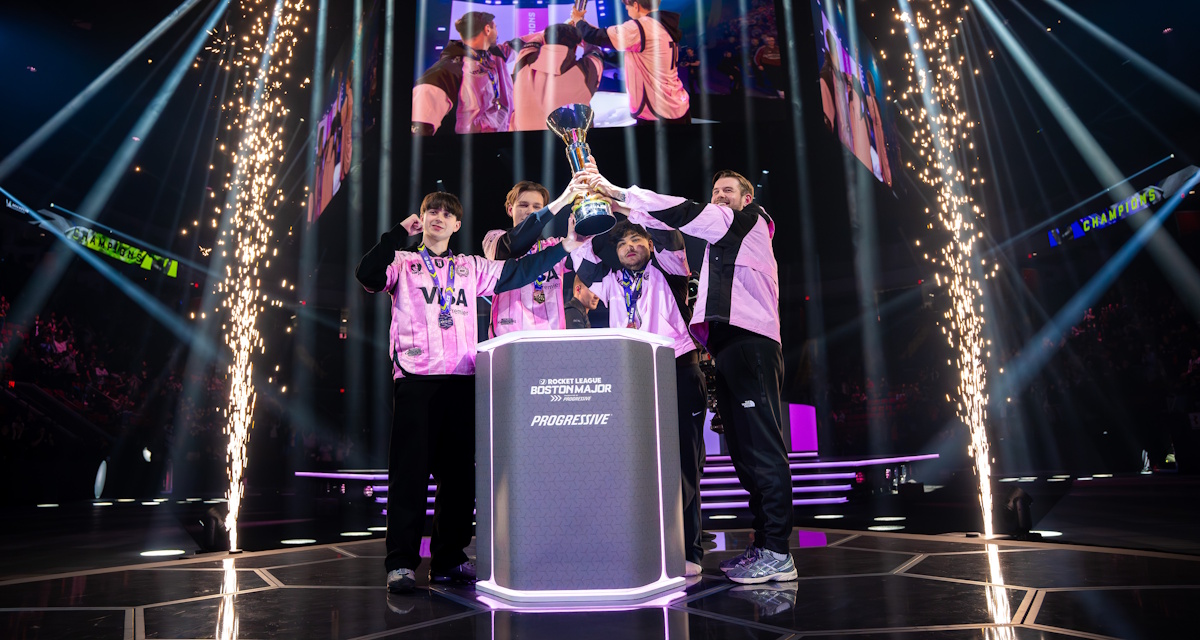
The Rocket League Championship Series (RLCS) Boston Major 2026 has officially become the most-watched event in Rocket League esports history, setting a new benchmark for global engagement and competitive excellence.
Held at Agganis Arena in Boston, the Major concluded with a thrilling all-French Grand Final, where Gentlemates defeated tournament favourites Team Vitality 4:2 to claim the first Major title of the 2026 season.
Record-Breaking Viewership Milestone
The RLCS Boston Major 2026 delivered unprecedented audience numbers:
- Peak Viewers: 624,316 concurrent viewers
- Average Viewership: Over 270,000 viewers
- First RLCS event ever to surpass 600,000 concurrent viewers
This milestone represents a 33.3% increase over the previous all-time peak recorded at the 2022–23 RLCS World Championship, highlighting sustained year-over-year growth and expanding global interest in Rocket League esports.
The event’s performance reinforces RLCS as one of the fastest-growing competitive circuits in modern esports.
A Grand Final Worthy of the Record
The Boston Major culminated in a high-stakes French showdown between Gentlemates and Team Vitality. The 4:2 victory secured Gentlemates’ first Major trophy of the season and signaled a shift in competitive power dynamics heading deeper into 2026.
The all-French final further amplified international audience engagement, particularly across European broadcast markets, contributing significantly to the event’s record-breaking concurrent viewership.
Global Broadcast Reach and Multi-Language Coverage
Beyond peak numbers, the Boston Major showcased:
- Multi-language broadcast streams
- Cross-platform digital distribution
- Strong in-arena attendance
- Expanded regional fan engagement
Hosted in front of thousands of live fans at Agganis Arena, the event combined traditional arena esports spectacle with robust online streaming performance — a formula that continues to fuel RLCS’s accelerating global momentum.
What This Means for Rocket League Esports
The 2026 Boston Major marks a defining moment for the RLCS ecosystem:
- Sustained Global Growth – The consistent upward trend in viewership confirms Rocket League’s staying power within the esports landscape.
- Mainstream Momentum – Breaking the 600K peak threshold positions RLCS among elite-tier esports events globally.
- Competitive Depth – The diversity and intensity of international competition continue to elevate the broadcast product.
- Commercial Validation – Record audience metrics strengthen sponsorship, media rights, and long-term circuit investment potential.
As the 2026 season progresses, the Boston Major sets a new performance benchmark that future Majors and the World Championship will aim to surpass.
The post RLCS Boston Major Becomes Most Watched Event in Rocket League History appeared first on Eastern European Gaming | Global iGaming & Tech Intelligence Hub.
Brazilian Carnival
Esportes da Sorte transforms Carnival 2026 into a nationwide immersive experience

Leading Brazilian iGaming company Esportes da Sorte has transformed Carnival 2026 into a nationwide immersive experience, activating urban art installations, hydration stations and large‑scale attractions across nine cities in Brazil. As part of its expanded cultural engagement strategy, the brand is serving as an official sponsor in key Carnival locations and delivering experiential initiatives designed for revelers in the streets and major public spaces.
Esportes da Sorte’s nationwide platform builds on its history of investing in popular culture and public events, moving beyond traditional branding to create meaningful on‑site activations that enhance the urban environment and respond to the unique character of each city’s Carnival celebrations.
In Rio de Janeiro, the company’s efforts focus on the street Carnival experience with hydration points, cool zones and shaded areas in high‑traffic celebration routes. São Paulo’s megabloc circuits feature water trucks, hydration stations and on‑site urban support.
In Recife Antigo, one of Carnival’s cultural centers, Esportes da Sorte installed a standout Ferris wheel at Marco Zero, offering panoramic views of the festivities and historic landscape. Urban transformations like video mapping on iconic buildings and aerial installations along Rua Marquês de Olinda further blend public space with the Carnival experience.
Other cities such as Olinda and Salvador also feature tailored activations, including sensory design, refreshment tunnels and themed artistic displays that align with local traditions and festival dynamics.
In addition to physical structures, the initiative includes a robust communications strategy, sensory activations, public well‑being supports and content campaigns that amplify the carnival‑street experience across digital and traditional media.
According to Germana Casal, Production Coordinator at the Esportes Gaming Brasil Group, the goal is to “be present in a meaningful way at the country’s biggest popular celebration,” respecting each city’s identity and delivering initiatives that improve the Carnival experience for participants.
Esportes da Sorte’s Carnival 2026 project builds on the brand’s presence at more than 100 Carnival parties and street blocos in 2025, reinforcing its leadership role in Brazil’s largest cultural event and deepening its connection with urban celebration culture nationwide.
The post Esportes da Sorte transforms Carnival 2026 into a nationwide immersive experience appeared first on Eastern European Gaming | Global iGaming & Tech Intelligence Hub.
chess esports
Team Vitality announces E.Leclerc as new Main Partner
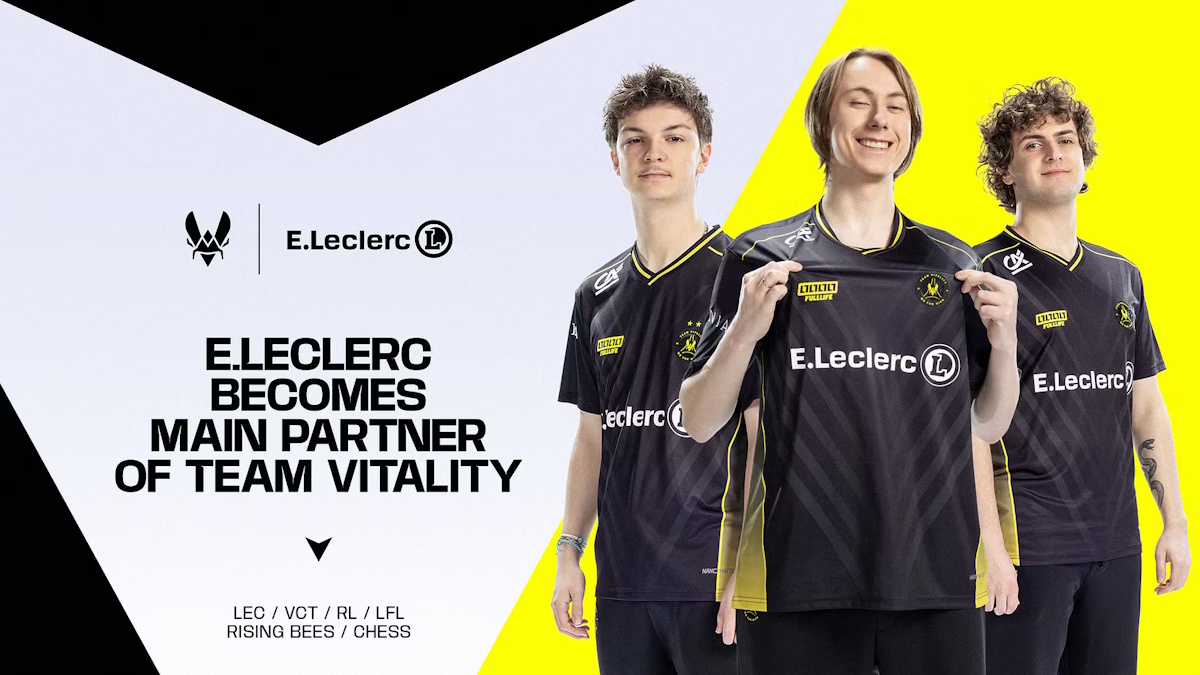
Team Vitality, one of France’s leading esports organizations, has announced a strategic new partnership with French retail giant E.Leclerc, naming the supermarket chain as the club’s Main Partner for 2026.
Under the agreement, E.Leclerc’s logo will feature prominently on Team Vitality’s international team jerseys, including rosters for League of Legends (LEC and LFL), Valorant (VCT EMEA), Rocket League, Rising Bees and Chess.
Shared Values and Fan Initiatives
The partnership aims to promote accessibility, wellness, and nutrition within the esports community, while bringing gaming culture into E.Leclerc retail spaces through immersive experiences, tournaments and activations designed to engage fans across France.
Team Vitality’s holistic wellbeing program, KARE, which supports performance, nutrition and mental health, aligns closely with E.Leclerc’s focus on responsible lifestyle initiatives. Together, they plan to champion inclusivity, provide unique gaming opportunities, and celebrate esports culture in both digital and physical environments.
With a global audience exceeding 10 million followers, Team Vitality’s influence in competitive gaming makes this partnership a landmark moment for both brands. E.Leclerc’s commitment to youth engagement and cultural connection positions the retailer as a significant non‑endemic supporter of the growing esports ecosystem.
Nicolas Maurer, CEO and Co‑Founder of Team Vitality, described the alliance as a historic milestone that will broaden esports’ reach across everyday life in France and reinforce its cultural legitimacy.
The post Team Vitality announces E.Leclerc as new Main Partner appeared first on Eastern European Gaming | Global iGaming & Tech Intelligence Hub.
-

 Baltics5 days ago
Baltics5 days agoHIPTHER Baltics Launches in Vilnius with Agenda Revealing Lithuania’s 2026 Regulatory Reset
-

 Amusnet5 days ago
Amusnet5 days agoAmusnet Enters into Strategic Partnership with Twinsbet Arena in Vilnius, Lithuania
-

 AI-Powered Compliance and Player Support5 days ago
AI-Powered Compliance and Player Support5 days agoDigerCompanion — Digicode’s AI Solution for Compliance and Player Support in Regulated iGaming
-

 Andrew Cardno5 days ago
Andrew Cardno5 days agoQCI Launches its Data Community Platform in Australia
-

 Latest News5 days ago
Latest News5 days agoSpinomenal Debuts Magical Genie — 3×3 Hold & Hit Adventure
-

 Brazil5 days ago
Brazil5 days agoOctoplay Enters Brazilian Market Through a Strategic Partnership with Superbet
-

 Free spins5 days ago
Free spins5 days agoOnlyPlay Releases Pub Fruits
-

 Latest News5 days ago
Latest News5 days agoWhen Everyone Sends Hearts, WinSpirit Asked a Different Question



